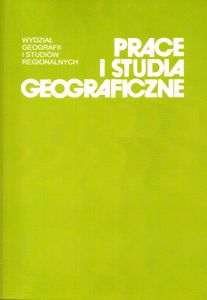Przenikliwe myślenie Eugeniusza Romera o Polsce w Europie
Eugeniusz Romer’s far-sighted thinking about Poland in Europe
Author(s): Mikołaj MadurowiczSubject(s): Cultural history, Human Geography, Social history
Published by: Wydawnictwa Uniwersytetu Warszawskiego
Keywords: Eugeniusz Romer;Poland;Europe;bridge;geography;cartography;
Summary/Abstract: The article presents the most eminent Polish geographer of the XXth century – Eugeniusz Romer – andhis constructive thought about Poland’s place in Europe. As a professor of geography at two universities: the JanKazimierz’s in Lviv and at the Jagiellonian in Cracow, he succeeded not only to work as an expert during the ParisPeace Conference (1919–1920), but also to initiate the Congress of the International Geographical Union in Warsaw.Romer was a miscellaneous geographer, because his scientific reflection included cartography, geomorphology, climatology,hydrography, glaciology, oceanography, anthropogeography, demography, geopolitics, historical and regionalgeography. As an extraordinary scholar, Romer proposed the world’s first hypsometric mapping of the entireEarth, the term “Polish climate”, and the physico-geographical arguments for legitimizing the existence of Poland inEurope (i.a. his famous “idea of bridging”). Romer treated both cartography and geography as a field of patriotismunderstood not in political terms, but rather in the spirit of a thorough recognition of the conditions and dynamics ofspatial phenomena and processes. The far-sightedness of Romer’s thoughts and actions was based therefore on theembedding of beliefs about state entities in a relatively constant geographical reality, not in a political combination of transitory alliances.
Journal: Prace i Studia Geograficzne
- Issue Year: 64/2019
- Issue No: 3
- Page Range: 111-126
- Page Count: 16
- Language: Polish

